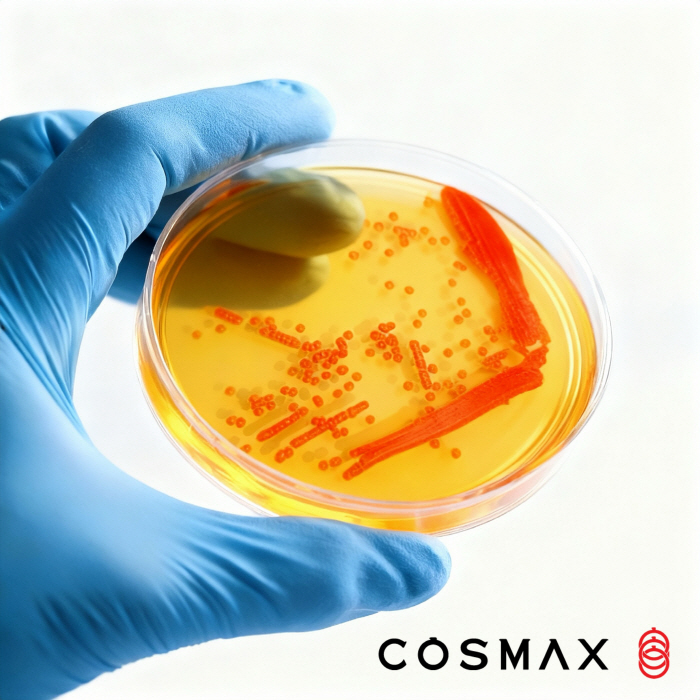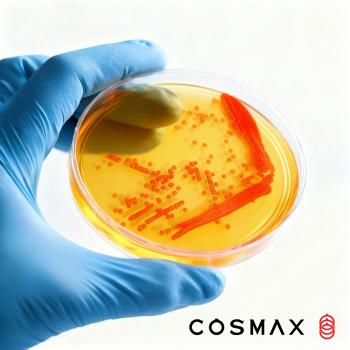Cosmax Expands Microbiome Exploration of Anti-Aging Microbiome in Local Plants
Nov 19, 2025
Cosmax, a global cosmetics ODM (research, development, and production) company, has discovered a new anti-aging microbiome in local plants in China to secure independence in research, development, and use. Cosmax plans to continue expanding its microbiome banks based on Chinese natural resources over the next five years to further strengthen its competitiveness in material research.
A research institute based on Cosmax China (R&I) unit announced on the 19th that it has discovered an anti-aging strain in water lily flowers in Yunnan Province, China, and registered it with the China General Micro-biological Culture Collection Center (hereinafter referred to as CGMC).
CGMCC preserves and manages a variety of microorganisms collected across China and assigns unique numbers to the registered strains. Through this, the independence of research results and intellectual property rights can be officially protected, and it is evaluated as a key institution to strengthen corporate R&D competitiveness.
The new strain 'CXCN-6' discovered by Cosmax is a yeast strain with excellent ability to produce carotenoids (carotenoids) and unsaturated fatty acids. Carotenoids are antioxidants known as natural pigments present in plants with colors such as orange, yellow, and red, and unsaturated fatty acids are also key components that can help strengthen skin antioxidants and barriers.
Cosmax plans to continue developing new raw materials by incorporating its own biotechnology into the anti-aging characteristics of 'CXCN-6'. Through this, the strategy is to respond to the needs of the next generation of anti-aging cosmetics market and strengthen the premium material portfolio based on its own ingredients.
Meanwhile, Cosmax China has established its own microbiome bank based on natural resources from all over China and has secured about 500 species of microorganisms within a year of operation. It is also actively promoting the diversification of materials based on local biological resources, such as research on next-generation hyaluronic acid materials using peony-derived microbiomes.
A research institute based on Cosmax China (R&I) unit announced on the 19th that it has discovered an anti-aging strain in water lily flowers in Yunnan Province, China, and registered it with the China General Micro-biological Culture Collection Center (hereinafter referred to as CGMC).
CGMCC preserves and manages a variety of microorganisms collected across China and assigns unique numbers to the registered strains. Through this, the independence of research results and intellectual property rights can be officially protected, and it is evaluated as a key institution to strengthen corporate R&D competitiveness.
The new strain 'CXCN-6' discovered by Cosmax is a yeast strain with excellent ability to produce carotenoids (carotenoids) and unsaturated fatty acids. Carotenoids are antioxidants known as natural pigments present in plants with colors such as orange, yellow, and red, and unsaturated fatty acids are also key components that can help strengthen skin antioxidants and barriers.
Cosmax plans to continue developing new raw materials by incorporating its own biotechnology into the anti-aging characteristics of 'CXCN-6'. Through this, the strategy is to respond to the needs of the next generation of anti-aging cosmetics market and strengthen the premium material portfolio based on its own ingredients.
Meanwhile, Cosmax China has established its own microbiome bank based on natural resources from all over China and has secured about 500 species of microorganisms within a year of operation. It is also actively promoting the diversification of materials based on local biological resources, such as research on next-generation hyaluronic acid materials using peony-derived microbiomes.
|
This article was translated by Naver AI translator.














